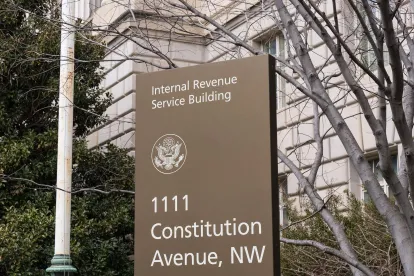After much anticipation, the IRS has finally announced a strategic operating plan to spend the nearly $80 billion in funds that it was allocated through the Inflation Reduction Act. Since this bill was signed, the new IRS funding has been a point of contention for many. The plan comes in the wake of persistent concerns about understaffing and tax filing backlogs at the IRS which have only grown worse since the COVID-19 pandemic. The IRS currently has about 80,000 full-time employees, which is 20% fewer than it had in 2010, despite a larger U.S. population and a more complex tax system. The Treasury Department indicated that the IRS will be hiring 87,000 employees over the next ten years, but the exact number of new employees was not included in the plan that was released last week. This comes on the heels of the IRS’s plan in 2022 to hire an additional 10,000 employees concentrated primarily on partnership audits.
The primary goal of the IRS’ $80 billion plan is to address “high-dollar compliance issues,” including those related to complex partnership structures, large corporations, and high-income individuals. Between 2010 and 2017, rates for auditing millionaires, large corporations, and partnerships fell by 77%, 44%, and 80%, respectively. Over half of the proceeds of the $80 billion plan will go towards expanding enforcement on wealthy individuals and businesses with complex tax returns. The Congressional Budget Office has projected that these efforts will increase federal revenue by more than $180 billion in the next decade.
The IRS plans to overhaul its approach by focusing on data and analytics to assist in identifying taxpayers for audit. While the IRS has stopped short of officially declaring its future strategy of conducting audits, its insistence on standardizing data and creating analytic models suggests that it will move towards a data-driven approach in selecting tax returns for audit. The IRS may take an approach similar to that taken by the New York State Department of Taxation and Finance, which conducts “desk audits” that are automatically triggered by computer-generated queries. Computer-generated queries specifically target areas for potential abuse and underreporting and instantly identify taxpayers that may be taking aggressive positions. For example, when taxpayers began leaving New York and moving to other States during the COVID-19 pandemic, over 140,000 audit notices were automatically sent out from January to August of 2021 to filers that either declared themselves as part-time New York residents or stated comparatively lower New York state income than in prior years. The implementation of such advanced analytics at the federal level has the potential to massively increase the number of queries and audits that the IRS can conduct while alleviating understaffing concerns.
Further, a Supreme Court case, Polselli v. Internal Revenue Service, which is currently pending may expand the type of information that the IRS has the power to collect. There is a debate over whether the IRS has the power to collect financial information from third parties without serving a summons on the taxpayer or otherwise notifying the taxpayer. If the Supreme Court affirms the decision of the Court of Appeals, the IRS will be able to obtain a taxpayer’s financial records from third parties without notice to the taxpayer. When paired with current information-sharing programs the IRS has with state and local governments, the IRS will have a vast amount of data and information to use to conduct its audits.
While “high-dollar compliance issues” are the IRS’ primary target, lower income individuals should still be aware. The IRS has pledged not to increase audit rates on those earning less than $400,000 a year, though the overall number of audits on these individuals seems likely to rise. Additionally, the IRS has promised to improve services to help taxpayers meet their obligations and receive tax incentives that they are eligible for. To that end, the IRS has already hired 5,000 additional phone assistors before the 2023 filing season, increasing the percentage of calls answered by an agent from 17% to more than 80%.
However, the IRS faces challenges in implementing these plans. Most notably, it will need to hire seasoned tax professionals who are capable of auditing high-net worth taxpayers and taxpayers with complicated returns. The IRS will need to offer more competitive compensation to attract such professionals. Further, it faces a steep climb in updating its foundational technology, which has been in place in part since the 1960s. In this regard, until very recently there was no system in place to allow taxpayers to connect with the IRS electronically. Even now, taxpayers’ ability to contact the IRS or submit documentation online is severely limited. The plan may also face funding challenges, as the $80 billion plan will require annual discretionary appropriations consistent with 2022 levels and will need Congress to approve such funding.
Even in its early stages, this announcement should put high net-worth individuals, partnerships and large corporations on notice. While auditing rates for these groups of tax filers have steadily decreased over the last ten years, the IRS has made clear that it intends to focus its efforts specifically on these groups. With improved technology and a larger workforce, an increase in audits of wealthy and complex taxpayers is nearly guaranteed. Attorneys and accountants for such taxpayers should take increased care both in their record keeping and in their tax positions. The IRS has made clear that it will be shining a much brighter light on these groups.
Individuals and businesses that receive an audit notice should contact legal counsel.







 />i
/>i

